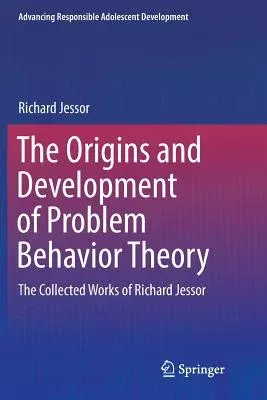Richard Jessor
(Author)The Origins and Development of Problem Behavior Theory: The Collected Works of Richard Jessor (Volume 1) (Softcover Reprint of the Original 1st 2016)Paperback - Softcover Reprint of the Original 1st 2016, 16 June 2018

Qty
1
Turbo
Ships in 2 - 3 days
In Stock
Free Delivery
Cash on Delivery
15 Days
Free Returns
Secure Checkout
Part of Series
Advancing Responsible Adolescent Development
Print Length
215 pages
Language
English
Publisher
Springer
Date Published
16 Jun 2018
ISBN-10
3319822101
ISBN-13
9783319822105
Description
Product Details
Author:
Book Edition:
Softcover Reprint of the Original 1st 2016
Book Format:
Paperback
Country of Origin:
NL
Date Published:
16 June 2018
Dimensions:
23.39 x
15.6 x
1.27 cm
ISBN-10:
3319822101
ISBN-13:
9783319822105
Language:
English
Location:
Cham
Pages:
215
Publisher:
Weight:
335.66 gm

